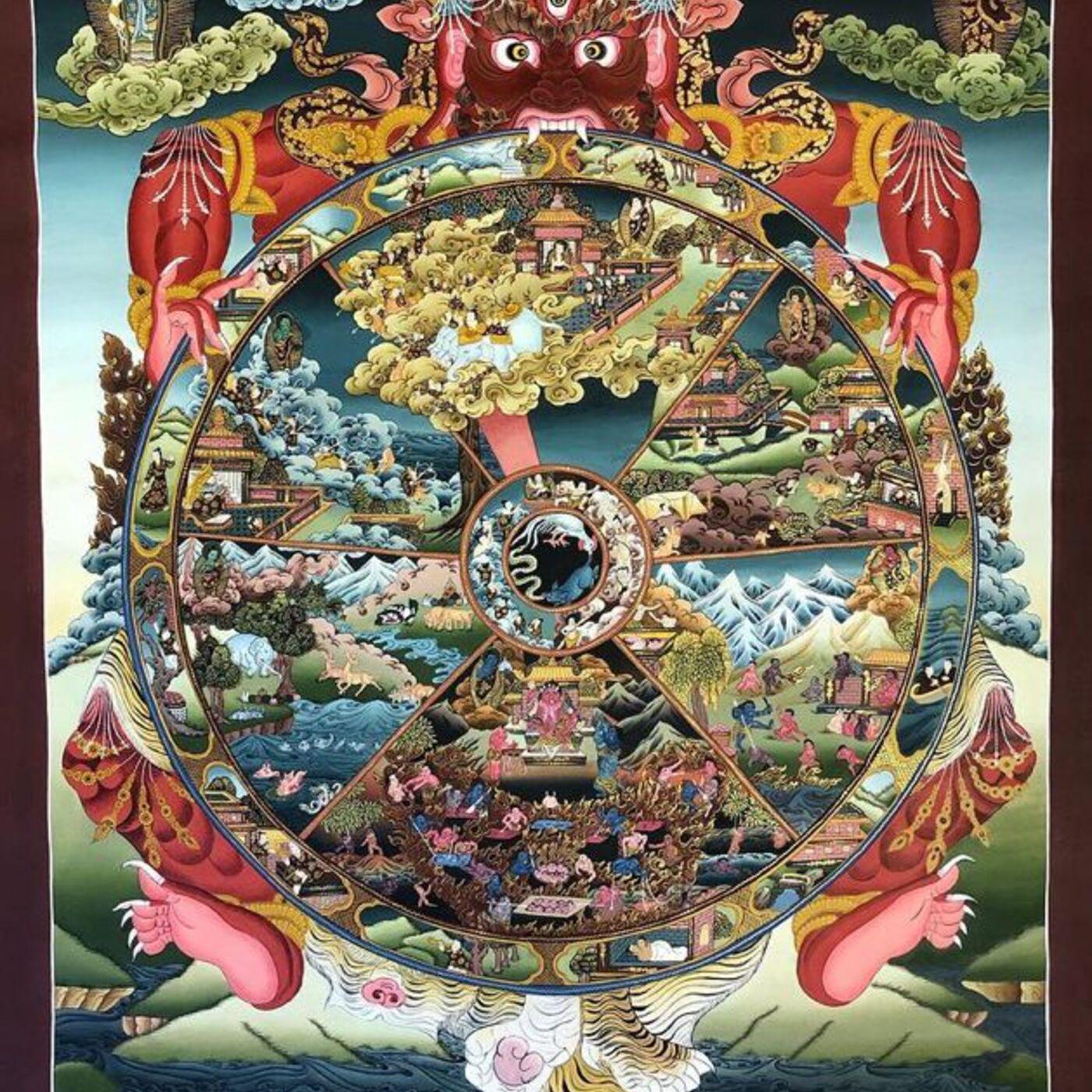Samsara: A Core Buddhist Teaching
Is the Buddhist concept of samsara (the cycle of birth, death, and rebirth) a form of theism? This is a common question. The truth is that samsara is one of the core teachings of Buddhism. Its importance is highlighted by the fact that to not believe in samsara is to not believe in Buddhism itself. But, is samsara a belief about death? No, it’s not. Instead, it is the Buddhist view of life.
The Buddhist View of the Wheel of Samsara
The concept of samsara in Buddhism is not just about what happens after death. It encompasses the entire process of life’s ongoing flux. As such, one could say that samsara is happening constantly and everywhere; it is the very reality of our lives. This is why we talk about the wheel of samsara.
Samsara: Not Fatalism but Transformation
It’s important to understand that samsara in Buddhism is not about a predetermined fate. Rather, it’s a concept that should be seen as an opportunity for growth and change.
The Cycle of Mind, Actions, and Rebirth
The samsara cycle involves the cycle of our state of mind influencing our daily life. Our current actions, in turn, determine our future lives.
The Question of Identity in Rebirth
If the wheel of samsara involves the transformation of life forms, who or what is it that undergoes this transformation? Who exactly is it that is being reborn?
Samsara as a Foundation for Ethical Conduct
Why does Buddhist teaching on samsara contribute to the betterment of society and moral values? Why is it considered an important source of ethics? The teaching of samsara emphasizes that our actions have consequences, encouraging us to act in a moral and ethical way.
Cultural Practices and Samsara
In many traditional cultures, when a loved one passes away, rituals of transcendence are performed in temples and monasteries. These customs have a profound impact, and contribute to the improvement of social and familial ethics.
Exploring the Essence of Rebirth
Popular belief often suggests that it is the soul that transmigrates in each rebirth. In contrast, standard Buddhist teachings propose that it is “consciousness” or vijnana that is reborn. Tibetan Buddhism speaks of the “intermediate state” or bardo as the entity that is reborn. Whether it is described as a “soul,” “consciousness,” or the “intermediate state,” these are all different ways of explaining the same concept to different audiences. They all describe the continuum of experience that continues from one life to the next.
The Purpose of Rebirth in Buddhism
The purpose of these teachings is not to prove or disprove the existence of a soul or a god. Instead, the focus is on guiding us to focus on our present actions. It encourages us to avoid evil and embrace good. The teachings on samsara are a reminder that we are responsible for our actions in this life.
Finding Liberation from Samsara
How can one find liberation from suffering? The answer lies in the attainment of enlightenment.
Embracing the World and Seeking Enlightenment
No matter what work we do, we must understand the laws of nature. Then we should actively utilize these laws, consciously integrate them into our life, and proactively plan our life goals. We should use our understanding of these laws to fulfill our life’s purpose. Studying Buddhism does not mean escaping the world. In fact, the more one cultivates their Buddhist practice, the deeper they become involved in the world. As the Buddha himself said, enlightenment is not achieved in the heavens, but here on Earth. To reach enlightenment, one must practice within the human world.
Therefore, abandoning the world to seek enlightenment is not practical. We must practice and seek enlightenment in this world of suffering and samsara. Cultivating ourselves means transforming our suffering into enlightenment, and transforming our passive participation in samsara into an active and conscious engagement.

